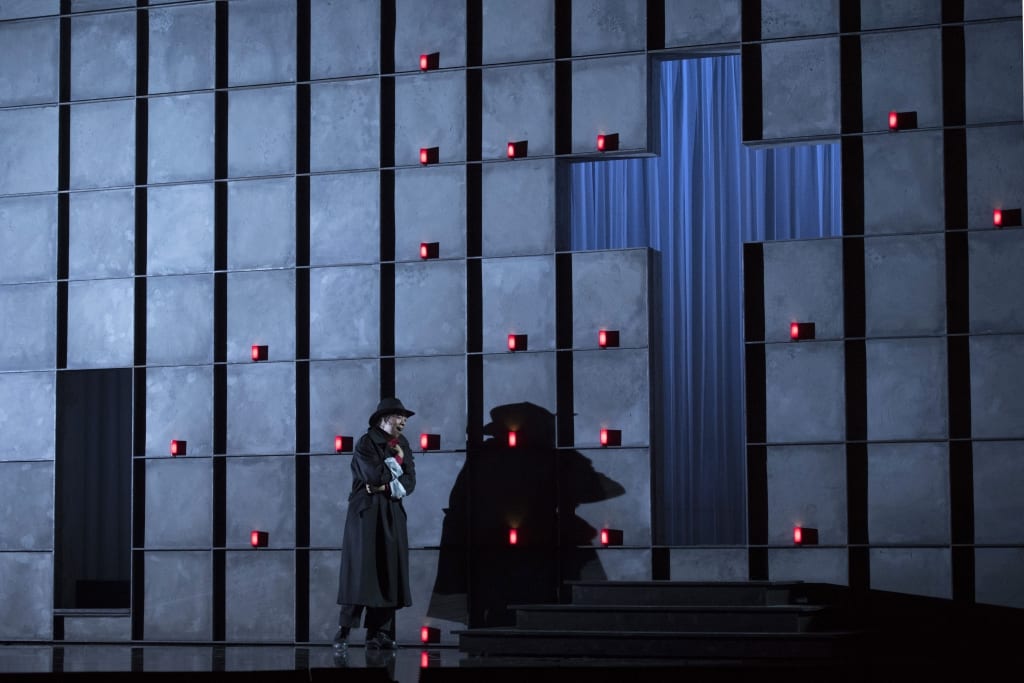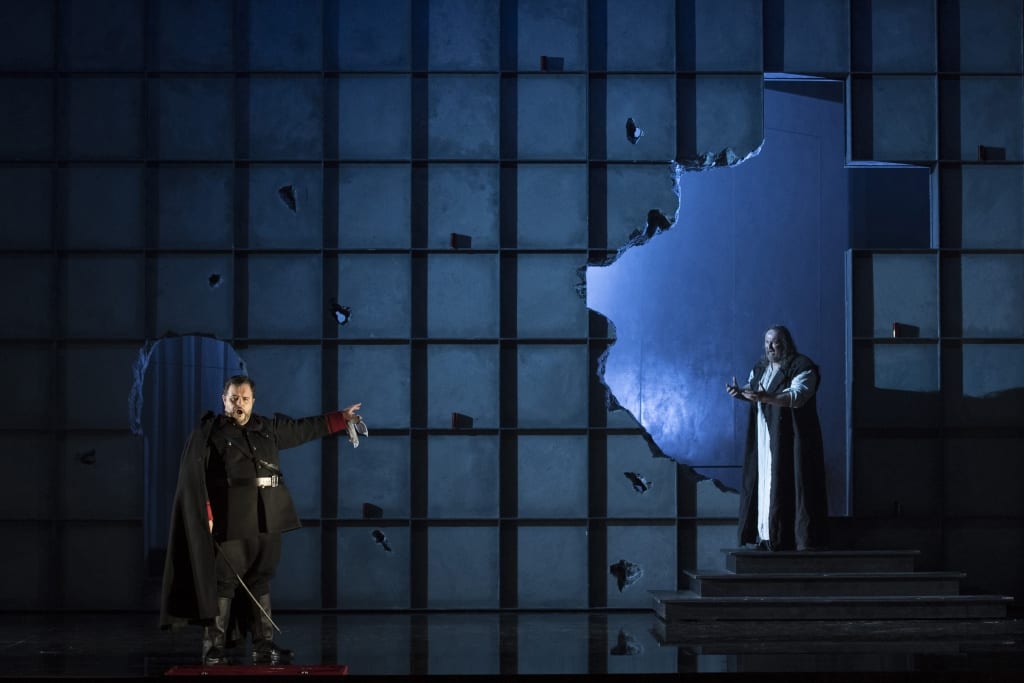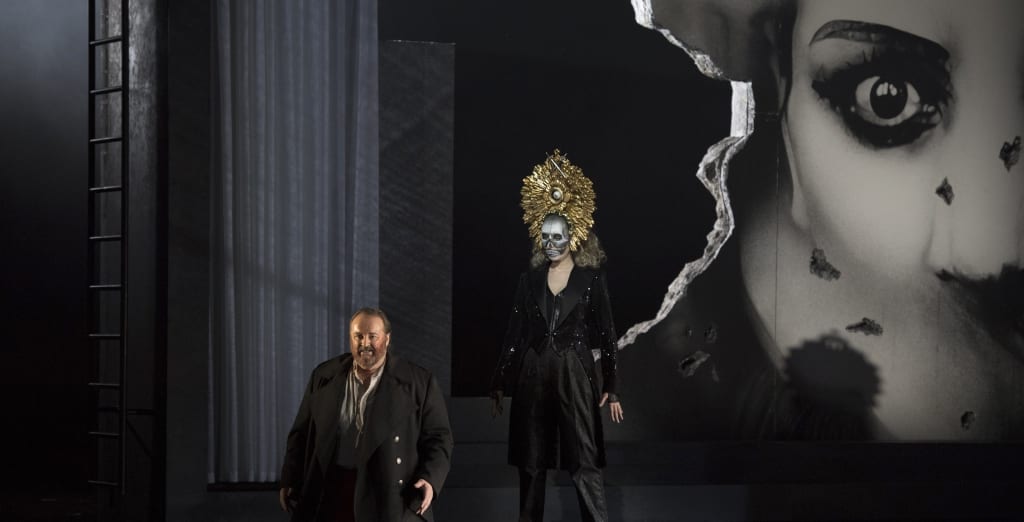This Verdi blockbuster, chosen by Welsh National Opera as part of their ‘Rabble Rousers’ season, deals with the malevolent effect of fate on three people whose lives are blighted by unlucky chance – the accidental discharge of a pistol. One of the key symbols of the design for this inventive production by David Pountney, WNO’s artistic director, is a repeated video projection of a gun spinning through the air in slow motion. It’s a powerful motif but perhaps a robe and mask might do just as well, given the frequent appearance of disguise and fake identity as the story unfolds.
Alvaro and Leonora are about to elope but their plans are interrupted by the arrival of her father. A gun is dropped. As it falls to the ground a bullet is fired, and he dies. As the old man breathes his last, his son Don Carlo arrives and vows to avenge his father by killing his sister Leonora and the seducer Alvaro. The miscreants flee and become separated, each finding disguises to hide their true identities. Don Carlo too assumes a disguise and the men become friends without knowing that they are, in their true identities, mortal enemies. After adventures in battles and monasteries, the three meet again with tragic consequences.

Verdi’s music is, as ever, dramatic and moving and the WNO’s superb conductor laureate, Carlo Rizzi, provides a reading of the score that does full justice to the musical struggle between blind fate and human frailty. His principal singers do not let him down. American soprano Mary Elizabeth Williams is a powerful Leonora at the centre of the drama, as moving as the hermit-nun of the final act as she is as the tormented lover of the first scene. Spanish tenor Luis Cansino sings Alvaro with passion. His voice sounds more secure in the reflective emotional passages but in the final duet with his nemesis Don Carlo he negotiates the switches between calm and anger with real style. Home-grown singer Gwyn Hughes Jones effectively portrays Don Carlo’s mindless thirst for revenge and his forceful baritone voice seems well suited to the demands of the role. Justina Gringyte is a mesmerising Preziosilla – her role seems much more central to the drama than usual because of Pountney’s vision of the drama.

Director David Pountney has a seemingly inexhaustible store of radical ideas which he brings to bear on every production he tackles. This one is no exception and though many of the ideas illuminate the drama, some are more difficult to appreciate. The role of the gypsy fortune-teller Preziosilla becomes a telling symbol for the destiny that seems so inexorably to lead towards the tragic ending. But there are many moments that do not seem so well integrated. The famous scene in which the gypsy stirs up the crowd to persuade the young men to enlist in the army looks like a cross between a youth hostel full of angry teenagers and a fascist youth rally and the scene in the army camp in Act 3 conjures up visions of a Weimar cabaret. Despite these reservations, the music is great, the whole thing is visually compelling from beginning to end and the story-telling grips the attention. Don’t miss it when it goes on tour.

